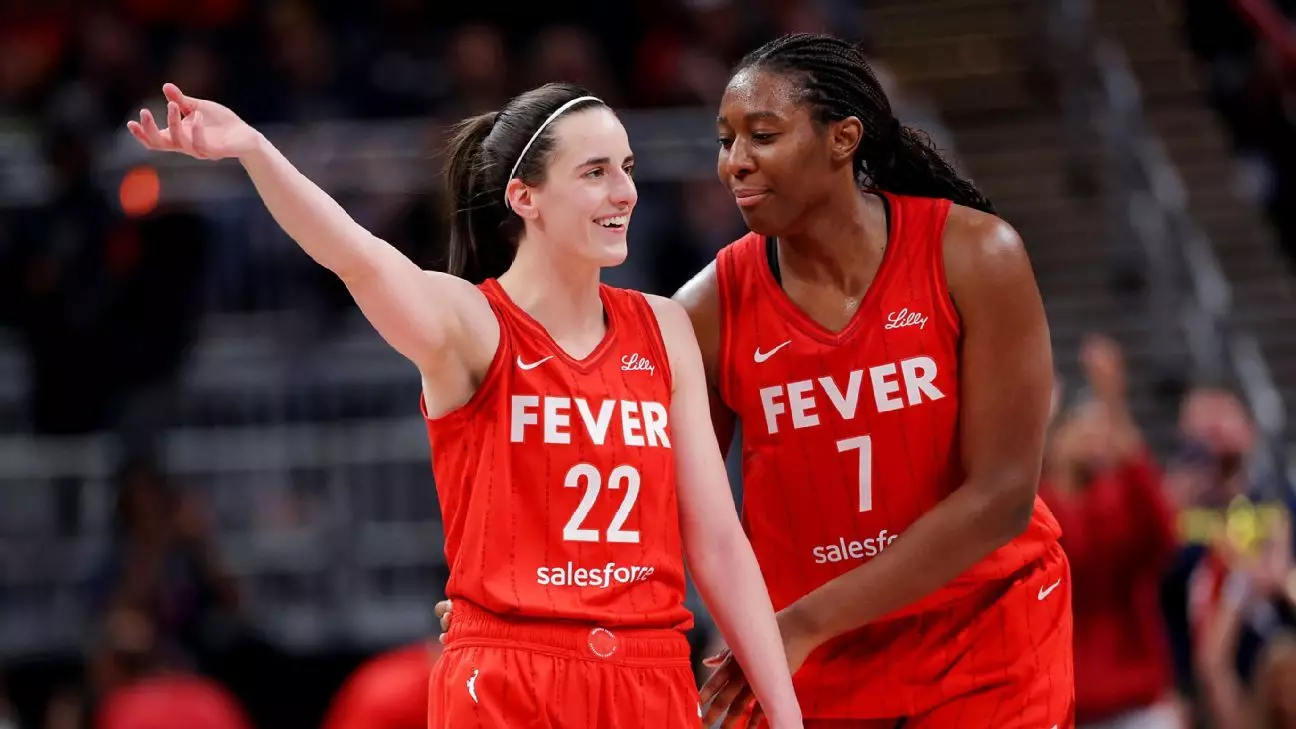The upcoming WNBA All-Star Game in Indianapolis is not just a showcase of basketball talent; it is a decisive moment that challenges the league’s notions of teamwork, favoritism, and the superficial glamour of star power. This event, scheduled for July 19 at Gainbridge Fieldhouse, seems poised to either elevate the sport with a display of true camaraderie or expose the underlying fractures within the league’s idealistic veneer. With three Indiana Fever All-Stars on the same team—an occurrence that in itself sparks unwarranted optimism—the event inadvertently underscores a deeper question: does assembling all-star talent for spectacle truly serve the league’s long-term integrity, or does it merely perpetuate the myth of individual brilliance overshadowing collective achievement?
The Power Dynamic of Drafting and Coaching Choices
The selection process, led by captains Caitlin Clark and Napheesa Collier, was more than a simple electoral exercise; it revealed the subtle, often contentious, negotiations that define modern sports. Clark, the Fever’s star guard, and Collier, a lynchpin for Minnesota, wielded their influence in drafting players and indirectly shaping the event’s narrative. Their choices—particularly the swap of coaches and the selection of teammates—highlight an underlying reality: leadership in the league is increasingly defined by personal relationships and strategic alliances rather than merit alone. The decision to switch coaching assignments from Cheryl Reeve to Sandy Brondello, for instance, reflected not just a scheduling convenience but a quiet assertion of control. This unilateral maneuver underscores that, even in a league that champions fairness, behind-the-scenes power plays continue to dominate the landscape.
The Myth of Fair Competition and True All-Star Merit
What becomes apparent through the roster choices and hypothetical trades is a disturbing trend: the conflation of popularity with performance. The draft process favored players with substantial fan vote support, often prioritizing well-known figures over emerging talents who might better represent the league’s future. Clark’s preference for her Fever teammates—Aliyah Boston and Kelsey Mitchell—was not solely based on skill but also on loyalty and personal rapport. Meanwhile, Collier’s selection of Breanna Stewart and others was equally influenced by existing relationships and marketability. This preferential treatment may artificially inflate the perception of objectivity but ultimately detracts from the very spirit of competition meant to showcase the league’s best talent objectively. The absence of trades further emphasizes the league’s stability over genuine competitive balance, a choice that lends an air of stasis rather than dynamism.
The Cultural Implications of a Star-Driven Event
Beyond the game itself, the All-Star festivities serve as a mirror reflecting broader societal values. The obsession with star power—highlighted by fan voting, strategic drafting, and media hype—creates a spectacle that often overshadows the foundational principles of teamwork and collective progress. For a league striving to establish a meaningful cultural identity within professional sports, this event risks reinforcing superficial narratives of individual greatness at the expense of community-building and constituency engagement. By focusing heavily on the personalities rather than the collective achievement, the league inadvertently perpetuates a view of women’s basketball as a stage for individual celebrity rather than a craft rooted in collaboration and shared ambition.
A Glimpse Into the Future of Women’s Sports
The choices made during this All-Star draft have implications far beyond the game’s timeline. They pose essential questions about leadership, fairness, and the true meaning of excellence in women’s sports. Will the league continue to elevate stars over the sport’s collective talent? Or will it find a way to balance personal recognition with the integrity of the game, nurturing not just individual careers but a genuinely unified basketball community? The 2024 event, whether it succeeds or falters, will serve as a critical measure of the league’s commitment to fostering authentic competition and societal progress through sport. Only time will tell whether the lessons learned from this All-Star showcase will inspire a more equitable, inclusive vision for women’s basketball or simply reinforce the cycles of superficial fame.


Leave a Reply